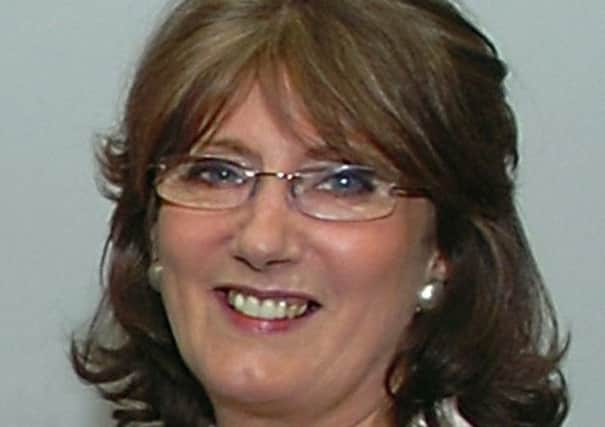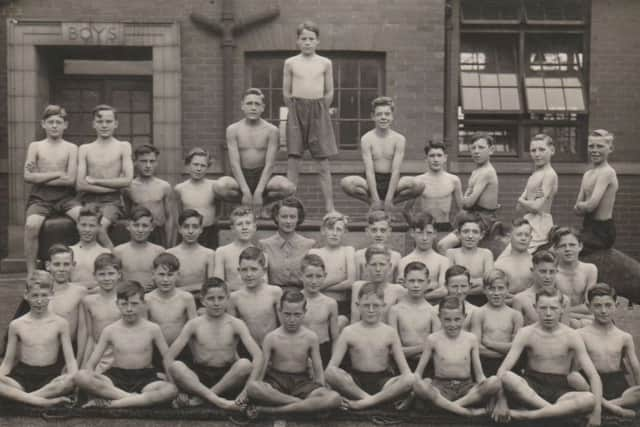The Nostalgia column with Margaret Watson


He has previously written about life in Ravensthorpe and the schools he attended, and his last recollections ended when he left Ravensthorpe Senior School after failing his 11-plus exam.
But, like many others who failed their 11-plus, Harold went on to become very successful in his chosen career.
Advertisement
Hide AdAdvertisement
Hide AdIn 1946, aged 13, he passed the entrance examination for Dewsbury Junior Technical School, and left in 1948 with a first class leaving certificate in building.


But he took full advantage of the further education opportunities available to him and completed his studies in Building ONC and HNC, and City and Guilds in Carpentry and Joinery.
Many young men, like Harold, continued their further education as far as it would take them while still serving apprenticeships.
Later he was to receive Membership of the Chartered Institute of Building and Certificate in Education (teaching certificate) and Diploma in Further Education.
Advertisement
Hide AdAdvertisement
Hide AdOn completing his studies he went on to be interviewed (unsuccessfully) for the post of Head of the Building Department.
Harold told me this was the post held by the highly regarded Mr Wood, who many former students will remember.
Harold returned to the college some years later, but this time to teach rather than study. He ran a course in health and safety for the staff.
Today, Harold writes about his days at the college and also about the entertainment children once enjoyed when Dewsbury had five cinemas and a theatre – the famous Dewsbury Empire.
Advertisement
Hide AdAdvertisement
Hide AdHe writes: “I was 13 in 1946 when I passed the entrance examination for Dewsbury Junior Technical School.
“Our course was a two year Junior Building Course, commencing Easter 1946, and although it was a co-educational school, our class was all male.
“The curriculum covered all practical aspects of the building work, in addition to a full academic programme.
“During this period I worked part time delivering groceries for the Thrift Stores, the Ravensthorpe branch of the Leeds Company.
Advertisement
Hide AdAdvertisement
Hide Ad“My delivery bike had a large basket on the front which made it heavy and unstable.
“Midweek I went to the Old Time dances at Ravensthorpe Ambulance Rooms, dancing to the music of Percy Haley’s Old Time Orchestra.
“I also played football for Ravensthorpe Albion, Battyeford Parish Church, and Gilder Hall under sixteen teams.
“Although the facilities at the clubs varied, the Gilder Hall Club House in Greenside Road, Mirfield, had excellent facilities, including a canteen, woodwork room and a gymnasium.
Advertisement
Hide AdAdvertisement
Hide Ad“There were also showers available, and the club had many activities such as table tennis and snooker.
“In the 1948/49 season I moved up to play for the Gilder Hall, Under Eighteen team and stayed with them until my 18th birthday in 1950.
“As a child I remember the popular children’s films of the 1930s/40s, such as Snow White and the Seven Dwarfs, Dumbo, Bambi, Pinocchio, Fantasia, the Jungle book, Lassie Come Home, Alice in Wonderland, Little Women, The Secret Garden, Gulliver’s Travels and the Adventures of Tom Sawyer.
“Popular radio programmes for children included “Children’s Hour” when children wrote in with requests, often just to get their names mentioned on the radio.
Advertisement
Hide AdAdvertisement
Hide Ad“All types of music were played, whatever the majority had requested, not just children’s pieces but a wide range of music from pop to hymns to the light classics.
“The ‘Ovaltineys’ was a children’s club founded in 1935. It had its own radio show sponsored by the manufacturer and achieved five million members in 1939. It was designed to promote the Ovaltine brand.
“In addition to the five cinemas in Dewsbury, we also had the Dewsbury Empire Theatre in Wakefield Road.
“The opening night variety programme for the Empire was on the 2nd of August 1909.
Advertisement
Hide AdAdvertisement
Hide Ad“The Royal Ballet performed there during the war, but with only a piano for accompaniment.
“The Theatre closed in 1955 when the company was forced into liquidation.
“The last production at the Empire was by the Dewsbury Operatic Society which leased the building (minus staff).
“The theatre was never converted to a cinema and was demolished in 1960.
Advertisement
Hide AdAdvertisement
Hide Ad“The present monstrosity known as Empire House was built on the site. Sadly, if it had only remained another year it might have been preserved forever.
“Morecambe and Wise were amongst many famous acts who performed there.
“The Empire had one of the best and longest running pantos in the North of England, and it was all home grown.
“The theatre was large, almost 2000 seats, and the shows ran from Christmas Eve until the beginning of March, most years.
Advertisement
Hide AdAdvertisement
Hide Ad“Anthony Newley and Lana Morris appeared in repertory theatre each summer, and big bands such as the Ted Heath Orchestra also appeared there.”
If you have memories of old Dewsbury (and pictures) contact me – [email protected].